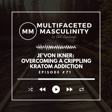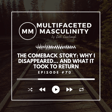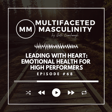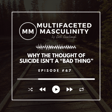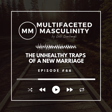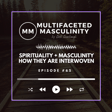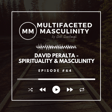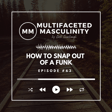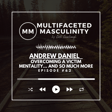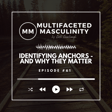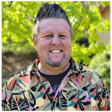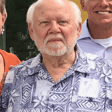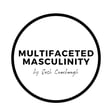
Josh Trent on Healthy Masculinity, Fatherhood, and Finding Inner Peace | Ep.# 69
Josh Trent has spent over two decades in pursuit of truth in wellness, driven by a deep curiosity that took root in childhood. Raised in a broken home, he turned to sports for solace, unknowingly laying the foundation for a lifelong journey toward personal well-being.
Through plant medicine, breathwork, and deep self-exploration, he has turned struggles into wisdom, guiding others toward greater health, presence, and emotional intelligence. With over 700 podcast interviews featuring the world’s top wellness experts, Josh openly shares his journey, inspiring others to embody wellness and wisdom in their own lives.
Josh Trent has spent over two decades pursuing truth in wellness, driven by a deep curiosity that took root in childhood. Raised in a broken home, he turned to sports for solace, unknowingly laying the foundation for a lifelong journey toward personal well-being.g into one’s purpose. With raw honesty, he shares experiences with self-doubt, past addictions, and the practices that have helped him cultivate resilience and wisdom.
This episode is packed with deep insights, personal stories, and a fresh perspective on what it means to live with authenticity and emotional intelligence.
Key Takeaways:
1. Overcoming Self-Doubt & Imposter Syndrome
• The only way through self-doubt is action—confidence is built by doing the work.
• True commitment comes when there’s no turning back.
2. Vulnerability vs. Transparency in Leadership
• Transparency is sharing struggles; vulnerability is allowing others into the pain.
• Leadership requires both, but boundaries are essential.
• The best leaders illuminate the path for others rather than just directing the light.
3. The Role of Plant Medicine in Healing
• Psychedelics (psilocybin, ayahuasca) can be powerful tools—but only with spiritual maturity.
• Misuse can be dangerous; preparation through meditation and breathwork is key.
4. Breaking Free from Limiting Patterns
• Removing toxic influences, healing childhood wounds, and deepening spiritual connection is crucial for growth.
• Personal transformation isn’t just intellectual—it requires emotional and spiritual healing.
5. The Power of Words & Identity Shifting
• Words shape reality; self-talk determines perception.
• Instead of resisting negative thoughts, engaging with them (e.g., Internal Family Systems Therapy) leads to healing.
• True power comes from peace, not force—wholeness makes us unshakable.
6. Three Things Men Must Focus On for Growth
• Emotional Epigenetics: Healing inherited trauma rather than being controlled by it.
• Clarity on Purpose: Knowing who you are and what you stand for.
This episode is a must-listen for anyone seeking a deeper understanding of masculinity, healing, and personal evolution.
Host: Josh Cearbaugh
Website: https://joshcearbaugh.com
Instagram: https://www.instagram.com/jcearbaugh/
Linkedin: https://www.linkedin.com/in/joshcearbaugh/
Podcast: https://www.multifacetedmasculinity.com/
Online Course: https://www.jumpstartyourlife.com
Guest: Josh Trent
